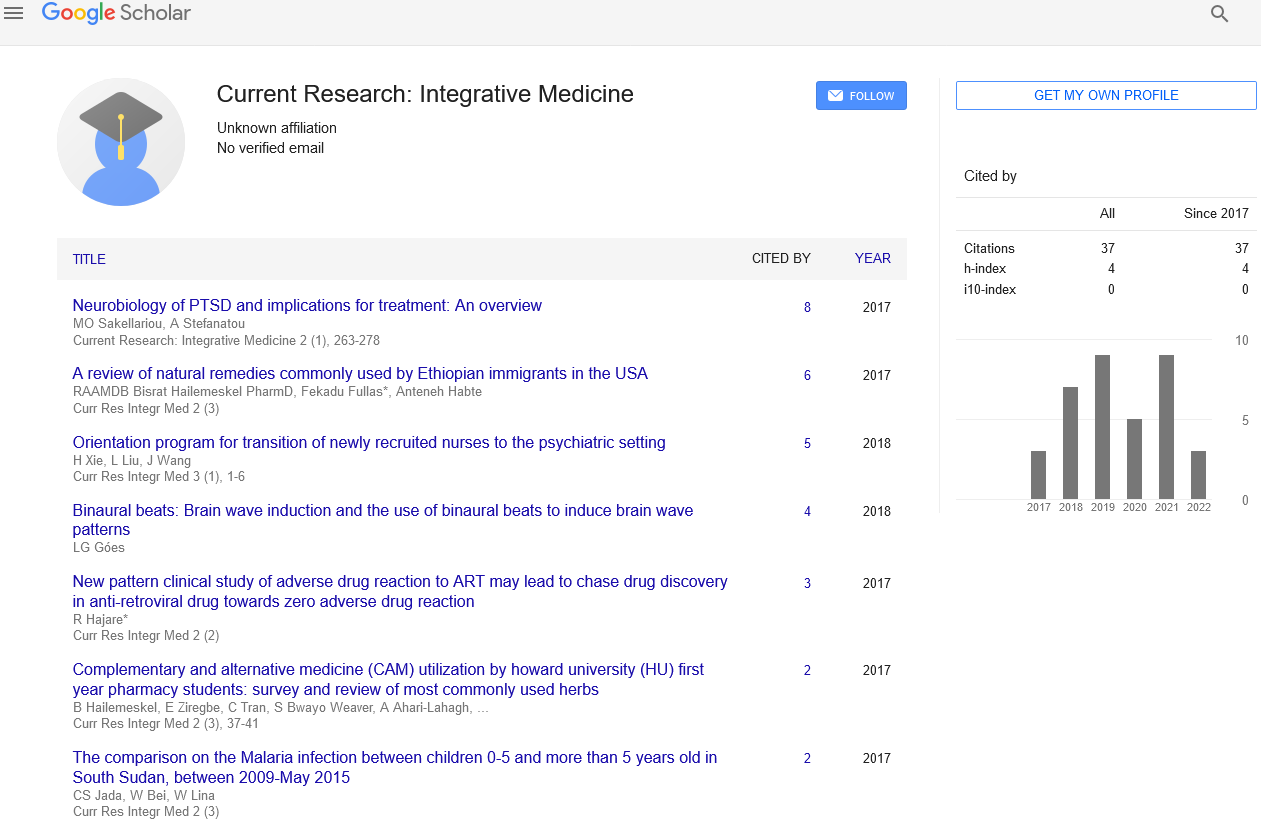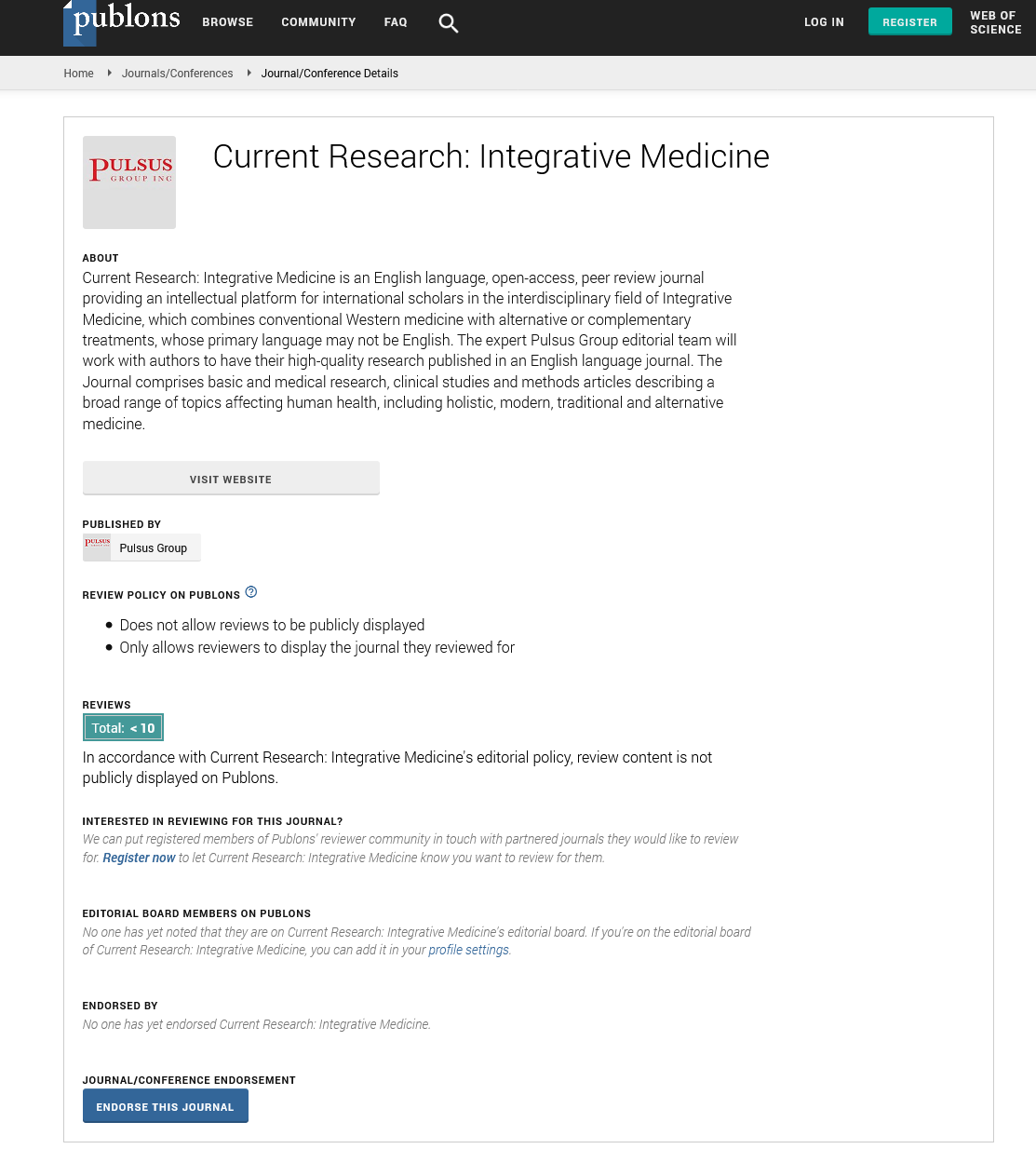
Sign up for email alert when new content gets added: Sign up
Can curcumin overcome cancer chemo resistance?
5th International Meeting on Complementary and Alternative Medicine & Therapies
September 18-19, 2017 Charlotte, USA
Mutlu Demiray
KTO Karatay University, Turkey
ScientificTracks Abstracts: Curr Res Integr Med
Abstract :
Curcumin was first isolated almost two centuries ago. Since the time of Ayurveda numerous therapeutic activities has been assigned to turmeric for a wide variety of diseases and conditions including those of the skin, pulmonary, gastrointestinal system, pains, wounds, liver disorders and cancer. Its anticancer activity, comprising the regulation of proliferation, survival, invasion, angiogenesis, and metastasis, has also been reported for several types of cancer. Especially curcumin potentiates chemotherapeutic agent apoptotic effects. In other words curcumin can overcome cancer chemo and radio resistance. Curcumin effect; Singh and Aggarwal have shown that curcumin inhibits NF-5B activation pathway at a step before inhibitor kappa B alfa (I5B) phosphorylation. Nuclear Factor- Kappa B (NF-5B) is a key inflammatory transcription factor expressed frequently in tumors. Therewithal NF-kB has an important role of cellular processes such as proliferation, apoptosis, inflammatory and immune response. Recent clinical studies have shown that significant NF-5B expression associated with chemo and radiation resistance and poor outcome in several human cancers. Wu at al. has evaluated NF-5B in the cancer patient outcome. This meta-analysis has shown that NF-5B overexpression is associated with worse overall survival and disease free survival. Moreover, NF-5B expression was shown to be TNM stage independent poor prognostic factor. Clinical studies that evaluated relationship between NF-5B and prognosis and treatment outcome, were shown that NF-B is associated with poor prognosis and poor response. Also activation of the NF-5B pathway renders many types of tumor cell more resistant to chemotherapy and radiotherapy, presumably via induction of anti-apoptotic proteins which apoptosis induction is a major mechanism of the action of radiotherapy and most chemotherapeutic agents. Inhibition of NF-5B activation seems to be promising option to improve the efficacy of conventional anticancer therapies. Preclinical and clinical observations indicate that NF-5B plays an important role in chemo and radio resistance and establishes the inhibition of NF-5B as a new approach in cancer treatment. Also NF-5B plays an important role at the multiple cancer related pathways, especially MAPK. Because of these specialities inhibition of NF-5B can potentiate tyrosine kinase inhibitors (TKI) effectiveness. Preclinical data supports these hypothesis and our clinical experience led us think that curcumin is a good partner for TKI. Preclinical in-vivo and in-vitro trials evaluated curcumin plus chemotherapeutic agent and TKIs combination. These trials had shown that curcumin combination with radiotherapy, chemotherapies or TKIs were better than each treatment alone. Preclinical and early clinical trials and our clinical experience which curcumin combination with chemotherapy, radiotherapy, TKI experience more than 4 years, led us think that adds to curcumin standard therapies (radio or chemotherapy or TKI) may cause better outcome. The best curcumin treatment regimen and the best curcumin formulations is not determinant until today. Therewithal curcumin loaded nanoparticles more effective than free curcumin. We might have got effective and safe partner of cancer treatment but we need more effective curcumin formulations. Conclusion; Preclinical in-vivo and in-vitro trials, clinical trials data which some of it came from us, shows that curcumin is very important adjunctive treatment agents are safe and inexpensive, as long as we have to use chemotherapy, radiotherapy and TKI.
Biography :
Mutlu Demiray is a Professor of Medical Oncology, KTO Karatay University and Medicana International Istanbul Hospital was born Turkey. After finishing Medical School at Akdeniz University at 1995, he started internal medicine specialty at Uludag University- Bursa, Turkey, where he studied the relation between gastric carcinogenesis and Helicobacter pylori. He finished his second specialty at Medical Oncology at 2004 while he was studying the levels of M30 and M65 at neo-adjuvant therapy of breast cancer. He gained Associated Prof. degree at 2006 and he attended at the very first applications of parenteral curcumin formulations with Dr. Huseyin Sahinbas at Germany, where he gained a lot of experiences about clinical use of curcumin. Getting Professor Degree in 2016 at KTO Karatay University, he is producing free and nano-curcumin formulations at the Scientific and Technological Research Council of Turkey. He has recently developed a new bio-available oral nano-formulation of curcumin with his colleagues





